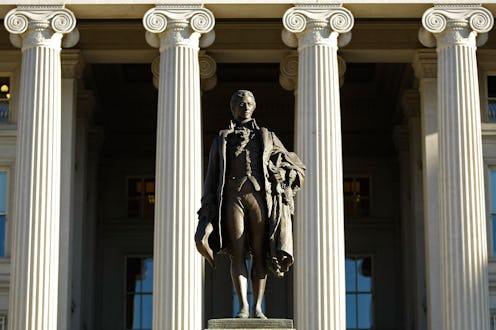News
The Electoral College Is More Outdated Than A VHS
On Dec. 19, electors across the country will meet to cast their votes for the president, officially selecting our commander in chief. This process has become the focal point of controversy following the Nov. 8 election, which left Republican nominee Donald Trump winner of the Electoral College, but Democrat Hillary Clinton winner of the popular vote by some two million (according to the latest from the nonpartisan Cook Political Report). With such a split happening for the second time in 16 years, some are calling for electoral reform, wondering whter the Electoral College is out of date.
Considering the system was designed nearly 230 years ago, I’d say the answer to that question is an unequivocal “yes,” but a part of that problem is that the Electoral College isn’t even being used the way it was originally designed. Even though Americans are raised on a steady diet of “freedom and democracy, woo-hoo!” rhetoric, I imagine many of you can relate to the wind-going-out-of-my-sails feeling I had when I first learned about the Electoral College in eighth Grade. “We don’t trust you people,” the framers were essentially saying. Actually, I guess the emphasis should be on people.
Yes, even though they’d just thrown off the control of a monarchy in favor of Enlightenment-inspired democracy, the white dudes who designed our government for us weren’t totally ready to hand over the reins of power to the (admittedly narrowly defined) citizenry. Much like P!nk, the American people were thought of as a hazard to themselves.
The Electoral College was meant to mitigate that. As Michael Signer pointed out in Time, the Electoral College was established to “to stop a candidate with ‘Talents for low intrigue, and the little arts of popularity’ from becoming President.” If that doesn’t describe Trump, I don’t know what does. (It’s also worth pointing out that the leaders of the South had other reasons to fear the national popular will. Indeed, if slavery had been up for a popular vote, it may very well have been ended much earlier than it was.)
Instead, the Electoral College, with its winner-take-all system skewing the value of different state’s votes and its rubber-stamp non-deliberative, has given power to the exact kind of person it was designed to keep out.
So what will happen on the “real” election day? Men and women whose names you don’t know (names that may have not even appeared on the ballot) will gather to cast the official votes for president. And while there is the potential for at least a few faithless electors to pose a threat to Trump's presidency, it is is unlikely that we will get Hamilton’s sought-after analysis, deliberation, or discernment.
